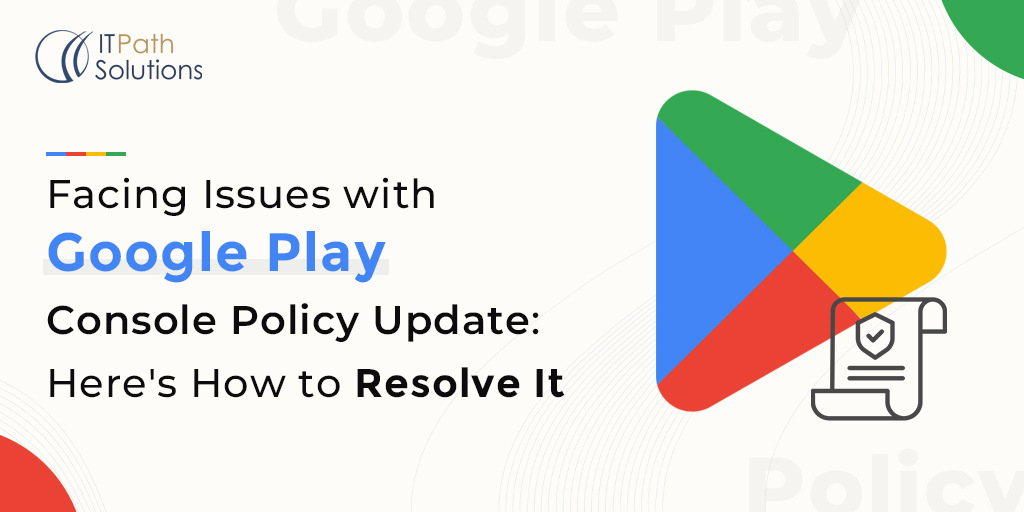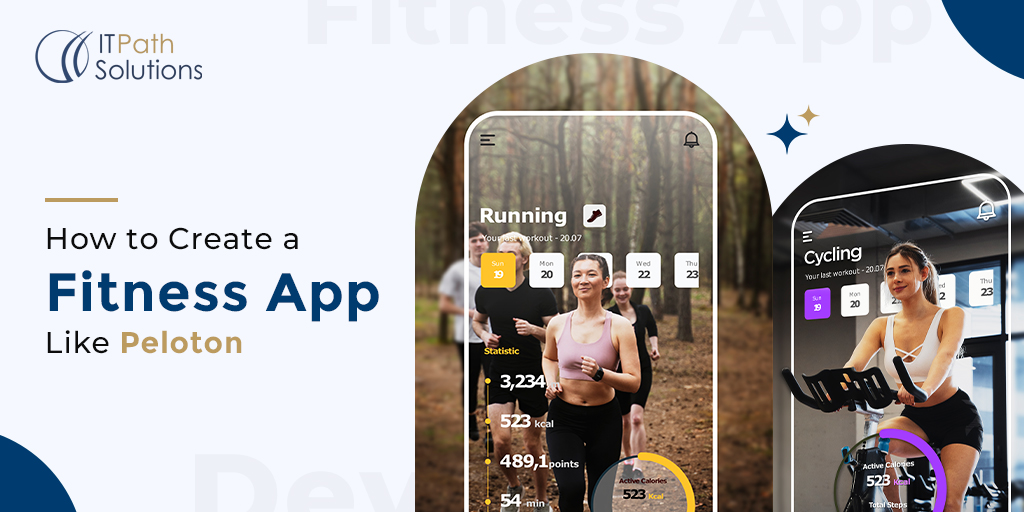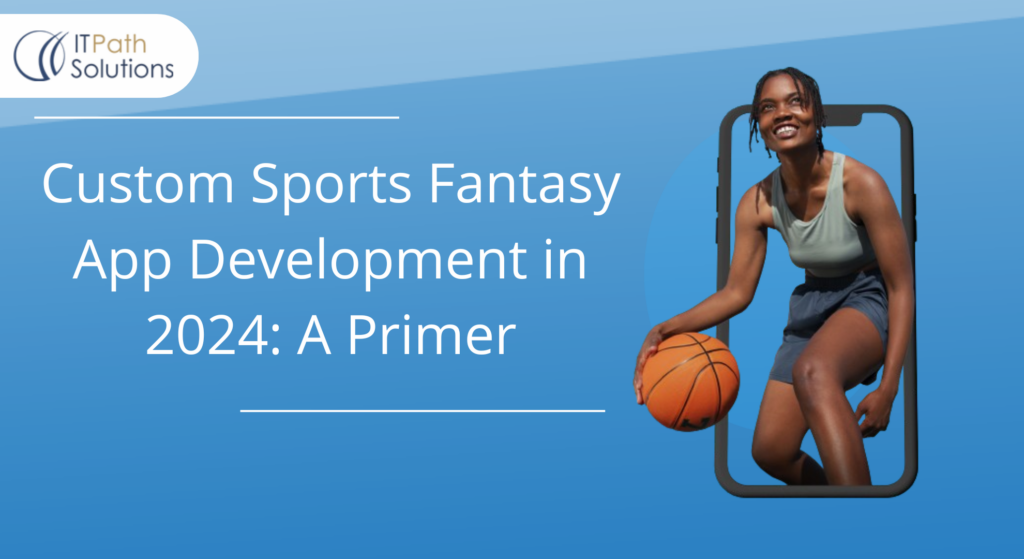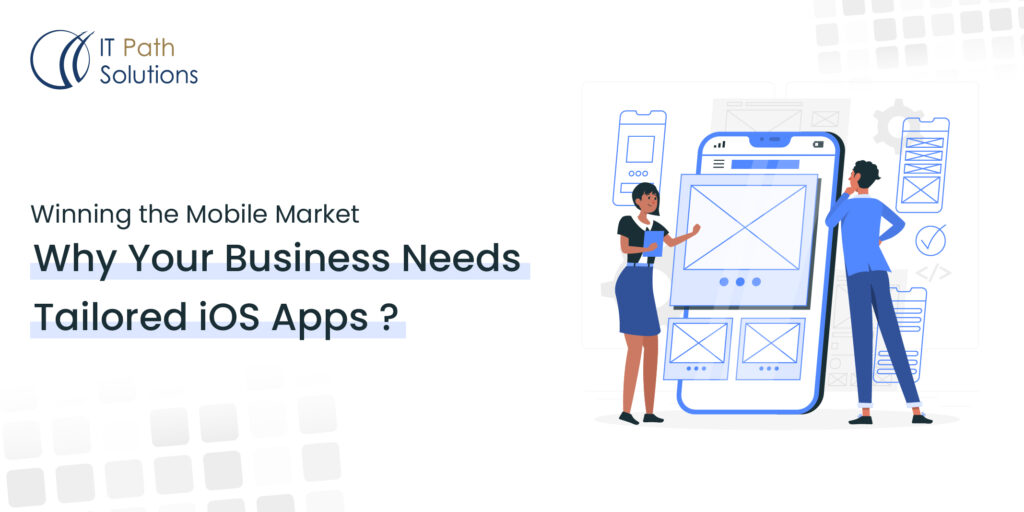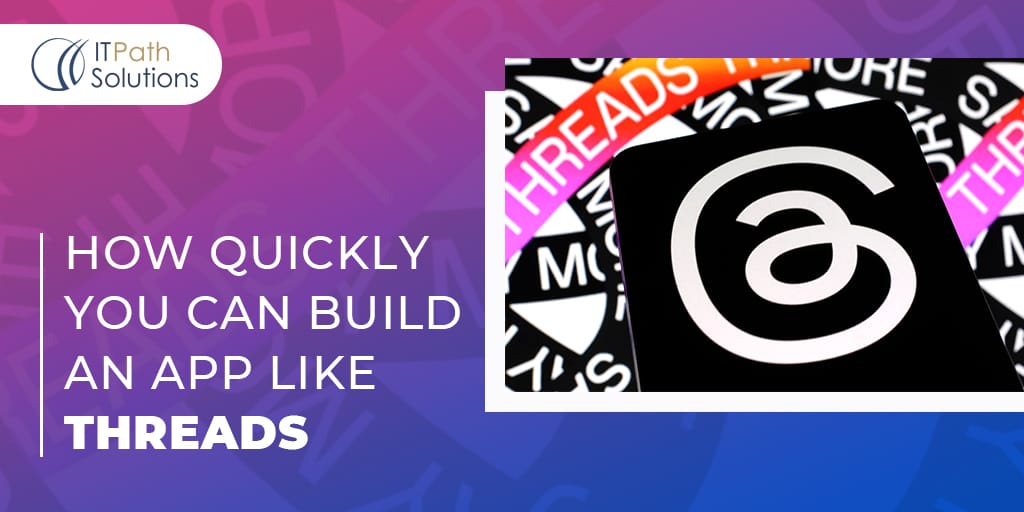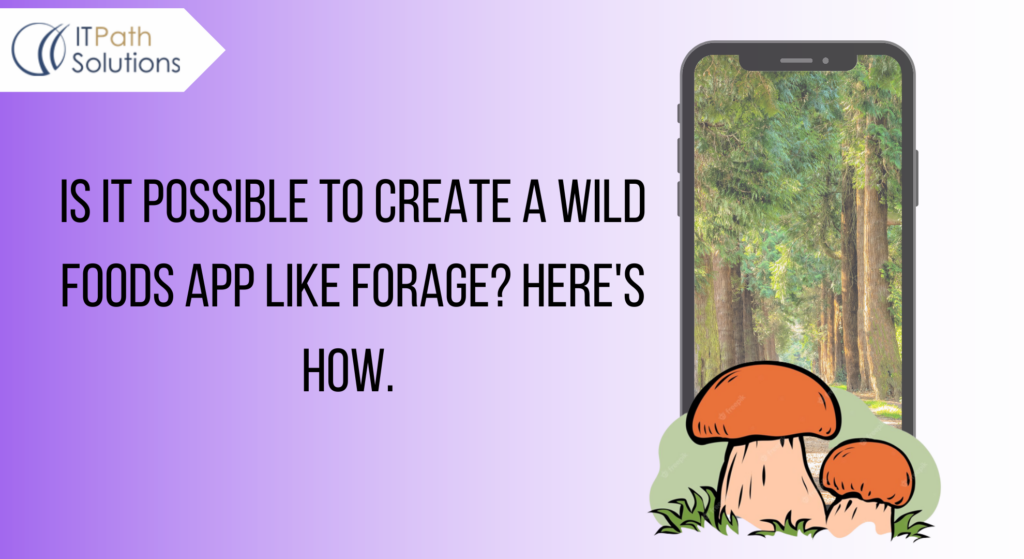How to Create a Music Streaming App: A Complete Guide
Mobile app development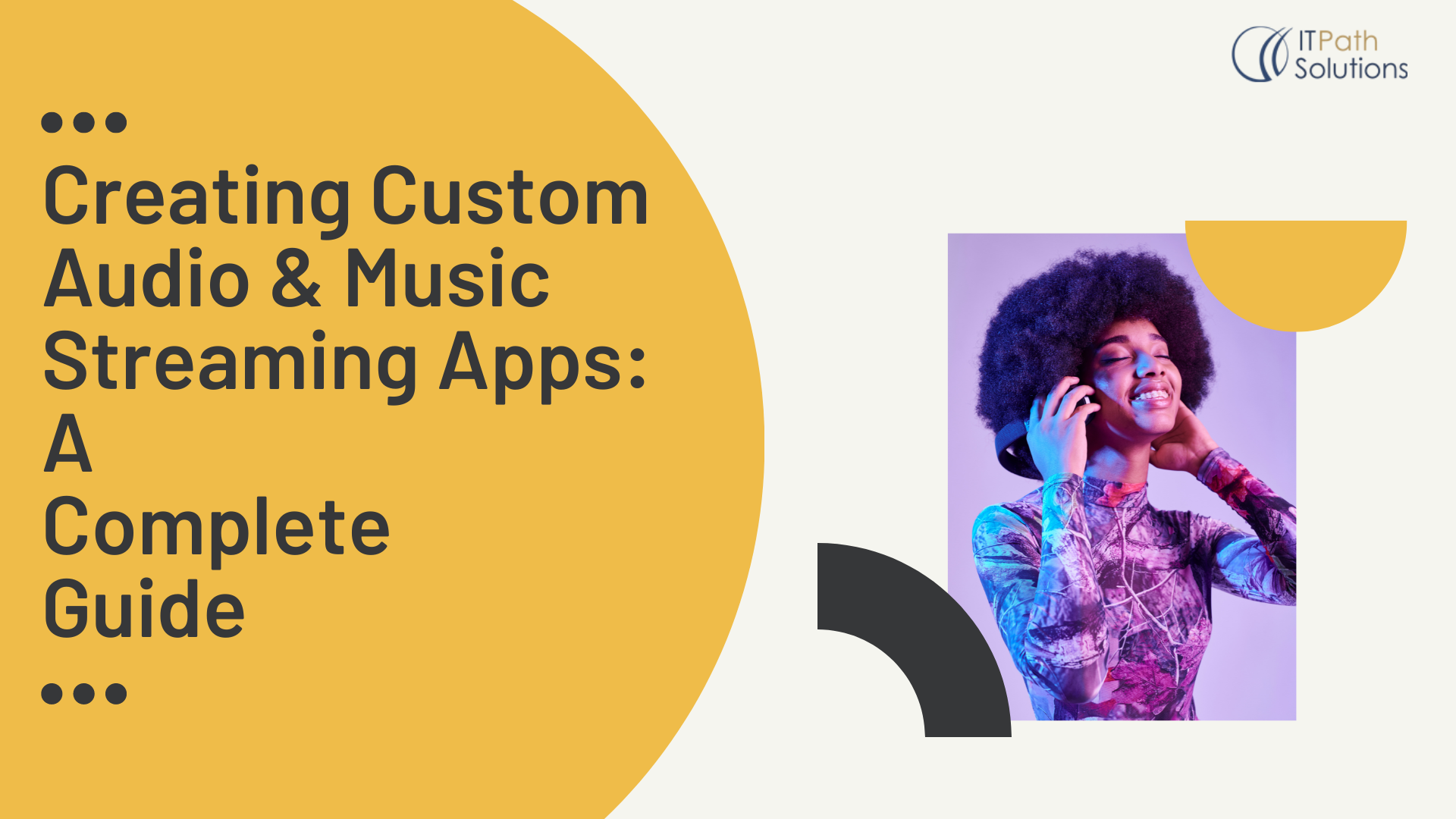
How to Create a Music Streaming App Like Spotify!
A music streaming app is a digital platform that allows users to listen to music over the internet without downloading the songs or albums. It provides users with access to a vast library of songs, albums, and playlists from various genres and artists. Instead of purchasing individual songs or albums, users can stream music on-demand or create personalized playlists according to their preferences. Music streaming apps utilize the internet to deliver audio content to users’ devices, such as smartphones, tablets, computers, and smart speakers. Users can search for specific songs, artists, or albums, discover new music recommendations based on their listening habits, and explore curated playlists created by music experts or fellow users.
The app typically offers both free and premium subscription options. Free users may have limited features, occasional advertisements, and lower audio quality, while premium subscribers enjoy ad-free listening, higher audio quality, offline listening, and additional features like exclusive content or live performances.
Music Streaming App Development
Many questions come to mind: how to build music streaming apps, and how they work? Here we briefly discuss how music streaming app development works. So first Music streaming apps work by utilizing a combination of technology, licensing agreements, and servers to deliver music content to users’ devices. Music streaming apps enter into licensing agreements with record labels, music publishers, and individual artists to obtain the rights to stream their music catalogs. The streaming app maintains a vast catalog of songs, albums, and playlists. Each piece of music is associated with metadata, including information about the artist, album, genre, release date, and track duration.Music files are uploaded to the app’s servers and encoded into various audio formats to accommodate different bandwidths and device capabilities. The app provides a user-friendly interface through which users can search for specific songs, albums, or artists.
In fact, music streaming apps provide users with a seamless and personalized music listening experience, allowing them to enjoy a vast library of music at their fingertips, discover new artists, and engage with the music community.
Market Statistics Of Music Streaming Apps Platforms
The global music streaming app market will reach 103.07 $ billion by 2023. It is expected to rise at a CAGR of 14.7% from 2022 to 2030.
In global comparison, most revenue will be generated in the United States ($10,200.00) million in 2023).
In 2023, the revenue for the Music Streaming market is expected to reach a total of US$10.20 billion.
Business Benefits of Music Streaming Apps
Music streaming apps offer several business benefits that contribute to their popularity and success. Here are some key advantages:
Wide Audience Reach
Music streaming apps have the potential to reach a global audience, transcending geographical boundaries. They can cater to users worldwide, allowing music companies and artists to expand their reach and gain exposure to a larger audience than traditional distribution methods.
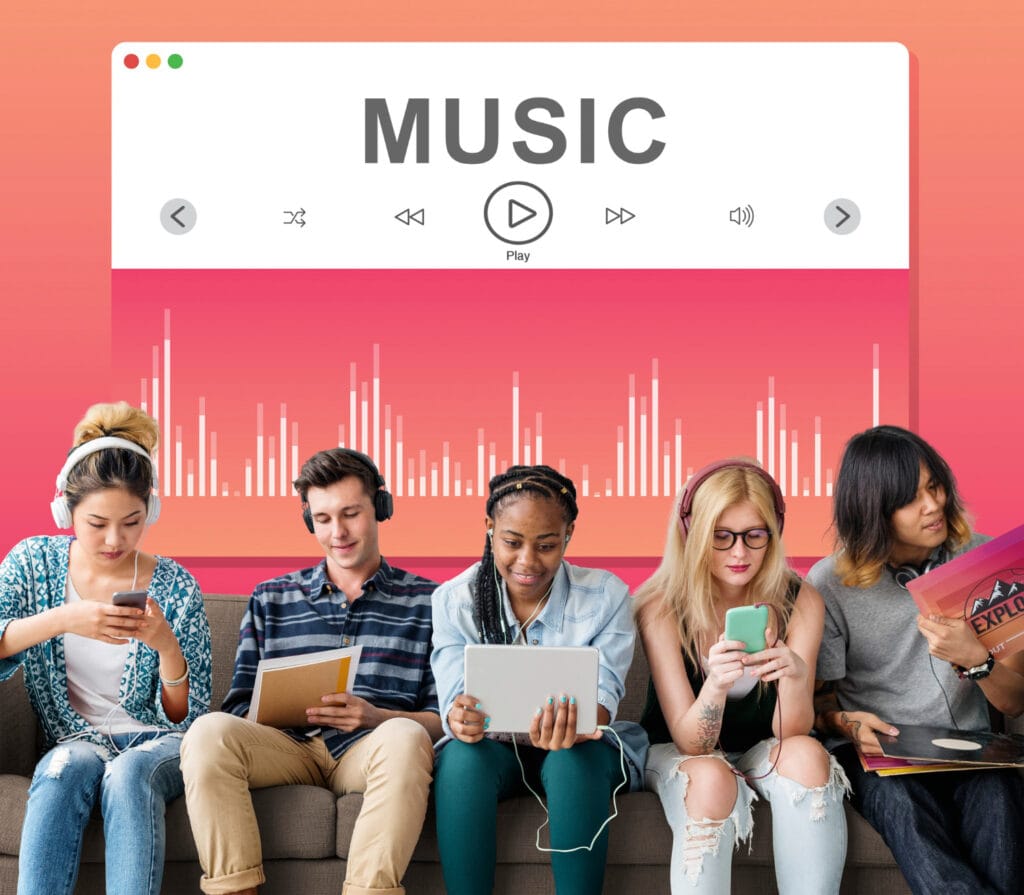
Music streaming apps can help you to reach wide audiance
Revenue Generation
Music streaming apps generate revenue through various channels. Subscriptions fees from premium users, advertising revenue from free tiers, and partnerships with brands and advertisers contribute to the app’s financial success. This revenue can be shared with artists, record labels, and rights holders based on licensing agreements and the number of streams.
Opportunities for Partnerships
Music streaming apps can form strategic partnerships with artists, record labels, and brands. Collaborations with artists for exclusive releases or live performances, partnerships with labels for catalog expansion, and brand collaborations for sponsored content or playlists can create additional revenue streams and mutually beneficial relationships.
Discoverability and Music Promotion
Streaming apps provide a platform for emerging artists to gain visibility and reach a broader audience. Curated playlists, algorithmic recommendations, and artist promotions within the app can help introduce new music to users and facilitate music discovery. This benefits both established artists and emerging talent seeking to gain recognition.
Convenient Access and Mobility
Music streaming apps enable users to access a vast library of songs, albums, and playlists on multiple devices, including smartphones, tablets, and computers. This flexibility and mobility enhance user convenience, as they can enjoy their favorite music anywhere, anytime, without the need for physical media or extensive downloads.
Insights for Artists and Labels
Music streaming app development provide valuable insights and analytics to artists and labels. This includes data on listener demographics, geographic distribution, and engagement levels for specific tracks or albums. Such information helps artists and labels make informed decisions regarding marketing strategies, tour planning, and future music releases.
Monetization Opportunities For Music Streaming Services & Apps
Subscription Model
Implementing a subscription-based model is a primary revenue stream for many music streaming services. Users pay a monthly or annual fee to access premium features such as ad-free listening, offline playback, higher audio quality, and exclusive content. The subscription fees contribute to recurring revenue and provide a stable income source.
Ad-Supported Free Tier
Offering a free tier with advertisements allows users to access the music streaming service without paying a subscription fee. Advertisements are played between songs or displayed on the app interface, providing revenue through advertising partnerships. Ad-supported free tiers help attract a larger user base, which can be leveraged for targeted advertising.
In-App Advertising
Music streaming apps can integrate targeted advertising within the app interface, including banner ads, audio ads, or video ads. Advertisers can reach users based on their listening habits, preferences, and demographic information. Implementing native ads that seamlessly blend with the app’s design and user experience can enhance engagement and generate revenue.
Partnerships and Brand Collaborations
Music streaming services can form partnerships with brands, artists, and advertisers. These collaborations may include sponsored playlists, exclusive releases, or branded content. Brands can pay for product placement or sponsor playlists that align with their target audience. Such partnerships provide additional revenue streams and cross-promotional opportunities.
Artist Promotion and Partnerships
Music streaming services can offer promotion packages to artists and record labels for increased visibility and reach. This may include featuring artists in curated playlists, promoting new releases, or providing analytics and insights on listener engagement. Artists and labels may pay for premium placement and promotional opportunities within the app.
Data Licensing and Insights
Streaming services collect extensive user data, which can be valuable to record labels, artists, and marketers. Aggregating and anonymizing this data allows for insights into listener behavior, music trends, and audience demographics. Services can monetize this data by offering analytics and insights as a separate service to industry partners.
Merchandise and Ticket Sales
Music streaming apps can integrate e-commerce capabilities, allowing users to purchase merchandise, concert tickets, or other related products. By partnering with artists, labels, or ticketing platforms, the app can earn a commission on sales made through the platform.
Platform Licensing and White-Label Solutions
Music streaming services can license their platform or provide white-label solutions to other companies or brands. This allows third-party entities to leverage the app’s technology and infrastructure to launch their own branded music streaming service, providing a revenue stream through licensing fees or revenue sharing agreements.
Collaborative Advertising Campaigns
Music streaming services can collaborate with brands and advertisers to create innovative and interactive advertising campaigns. This may include gamified experiences, exclusive content releases tied to a brand promotion, or sponsored playlists tied to specific events or themes. Collaborative campaigns can attract user engagement and provide a revenue boost through brand partnerships.
Features of Music Streaming Mobile Apps
Music streaming mobile apps typically offer a range of features to enhance the user experience and provide a comprehensive music listening platform. Here are some general features commonly found in music streaming mobile apps:
Song and Album Streaming
Users can stream songs and albums from a vast music library directly to their mobile devices over the internet. The app provides access to a wide range of genres, artists, and albums.
Personalized Recommendations
Apps employ algorithms and machine learning techniques to generate personalized music recommendations based on users’ listening history, preferences, and behavior. These recommendations help users discover new artists and songs tailored to their taste.
Curated Playlists and Radio
Music streaming apps offer a collection of curated playlists created by music experts or based on popular themes, moods, or genres. Users can explore and listen to these playlists or enjoy personalized radio stations based on their preferred artists or genres.
Search and Discover
Users can search for specific songs, albums, or artists within the app. They can explore music by browsing genres, charts, top tracks, and new releases. The app may also provide a “Discover” section with recommended content and trending music.
Offline Listening
Many music streaming apps allow users to download songs or playlists for offline listening. This feature enables users to enjoy music even without an internet connection, enhancing convenience during travel or in areas with limited connectivity.
Customizable Playlists
Users can create their own playlists by selecting songs from the music library. They can organize their playlists based on their preferences, moods, or activities. The app may also offer collaborative playlist features, allowing users to collaborate and create playlists with their friends.
Social Sharing and Interaction
Users can share their favorite songs, albums, or playlists on social media platforms or within the app’s community. They can follow friends, artists, or influencers and discover music recommendations based on their social connections. Commenting, liking, and sharing features facilitate interaction and engagement within the app.
Lyrics Display
Some music streaming apps provide synchronized lyrics for songs, allowing users to sing along or understand the lyrics while listening. This feature enhances the overall music experience and engagement.
Cross-Platform Syncing
Music streaming apps offer cross-platform syncing, allowing users to access their music library, playlists, and preferences across multiple devices. Users can seamlessly transition from one device to another without losing their settings or progress.
Audio Quality Settings
Apps often provide options for users to customize the audio quality based on their network conditions and preferences. Users can choose between different audio streaming qualities to optimize their listening experience.
Music Playback Controls
Apps offer standard music playback controls, including play, pause, skip, repeat, and shuffle. Users can control the playback and adjust volume directly from the app interface or device controls.
Integration with Other Services
Music streaming apps may integrate with other services and platforms, such as social media, smart speakers, car systems, or wearable devices. These integrations allow users to access their music and playlists seamlessly in various environments.
Why do you need the help of expert music mobile app developers?
Expert music mobile app developers play a crucial role in the development of music streaming apps. Music mobile app developers bring technical expertise, platform-specific knowledge, and a deep understanding of the music streaming industry. Their skills and experience are essential for building robust, user-friendly, and feature-rich music streaming apps that provide an exceptional user experience.
Conclusion
Creating a music streaming app requires a combination of strategic planning, market research, and skilled development. It’s important to define your target audience, conduct market research, and develop a business plan that outlines your mission statement, revenue model, and marketing strategy. Remember that developing a custom music streaming app requires collaboration with a team of experienced app developers, designers, and backend engineers. Hiring iOS and Android App developers that have the skills, experience, and passion for delivering a high-quality and feature-rich app that meets your specific requirements. Once you have your design and features in place, it’s important to launch your app and monitor its performance to make necessary improvements. By following these steps and incorporating unique and innovative features, you can create a successful music streaming app that appeals to your target audience and stands out in the crowded market.
 Healthcare
Healthcare  Education
Education  Real Estate
Real Estate  Logistic
Logistic  Fitness
Fitness  Tourism
Tourism  Travel
Travel  Banking
Banking  Media
Media  E-commerce
E-commerce  Themes
Themes
 Plugins
Plugins
 Patterns
Patterns
